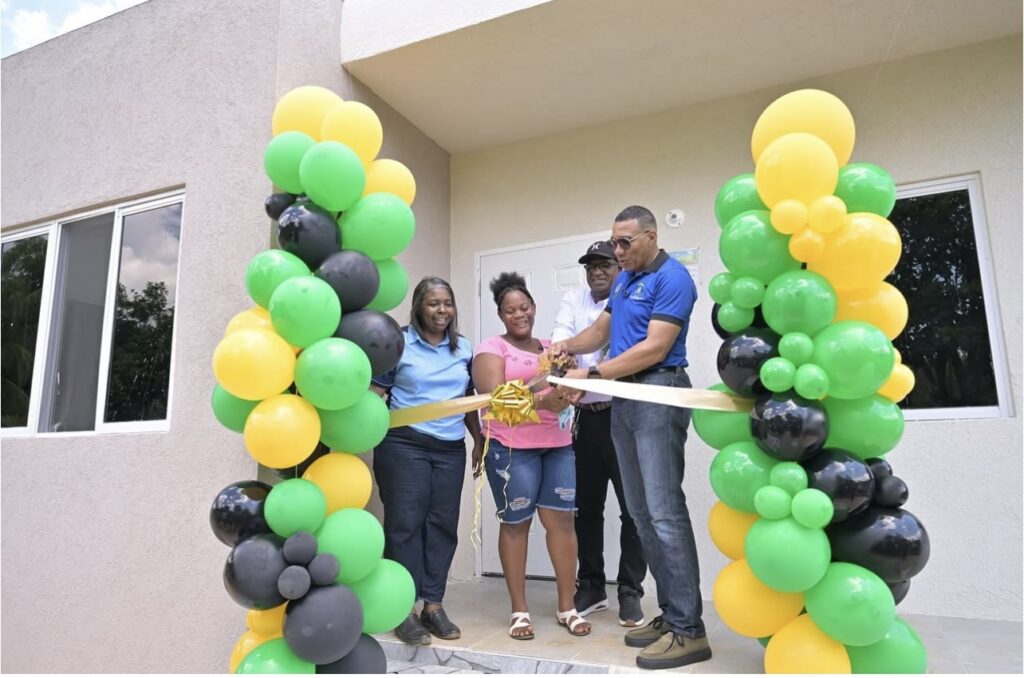NSHP Ribbon Cutting Ceremony: Shady Grove, Lluidas Vale,

Remarks
by
Dr the Honourable Andrew Holness ON, PC, MP
Prime Minister of Jamaica
At the
NSHP Ribbon Cutting Ceremony: Shady Grove, Lluidas Vale,
St Catherine
On
May 30, 2025
_______________________________________________________________
Thank you, Judith.
Very quickly, this story that was told by Nadine as to how she got to this point clearly indicated a great deal of support from her family, support from political representatives and support from communities. And in fact, what I glean from your story is that your son put some funds together and some friends put some funds together and someone who used to work with Mr Pickersgill was very instrumental in referring you to the programme and all of that comes together to bring you to this point.
It’s critical to point out that the government in this programme does not purchase lands to construct the houses. The beneficiaries have to come to the programme with land. Either they own it or they get it as a gift or someone is willing to give them a long-term lease and for us the long-term lease would have to be somewhere in the region of 99 years. That means you technically own it for your lifetime so that the benefit stays with you for life and is likely to be intergenerational. You can assign it to your beneficiary because a part of the objective of the programme is to break intergenerational poverty.
We are very happy with this programme because it has been very effective in terms of targeting and the people who get the benefit we are absolutely sure that they need it. But you know, there’s a biblical principle, God helps those who help themselves and so for this programme there may be the view that the beneficiary is just there sitting down and waiting. I could say that 90% of the time that is not the case, that the beneficiaries are active in trying to find the land, active in trying to secure the land, active in following up and participating in the programme and most of the beneficiaries are active in the construction. They’re there carrying buckets of cement, helping with sand, carrying food for the workers, encouraging the workers to get it done so it’s not a situation where we just come and hand over the house and you’ll sit back and some manor falls from the sky and you get it. No, the beneficiaries are in pursuit of their own benefit and that is good, and certainly your story is reflective of that.
The sun is very hot so let’s get to the signing. There are a few conditions that we ask the beneficiaries to agree to and the conditions are fairly simple. One, that you agree to maintain the house in the condition that you got it. And then number two, that you are going to live here. You’re not going to rent it out or do something else with it. And then number three, if you’re going to modify the house, if you’re going to expand or further fortune should smile at you and you decide to go up another two or three stories, before you do that, you will contact the Ministry of Housing, the New Social Housing Unit to get some information and direction as to how you can do that, because the house is built to a certain specification. The other requirement is that anything you’re going to do here, it must be legal.
They used to have a horse in the 80s, a very popular horse. Won all the races. It’s called Legal Light. I don’t know if you know that horse. Well, if you’re going to do anything here, you must have legal light and legal water. And then a part of the social contract is that you agree to continue to be the upstanding citizen that you have been in order to have qualified to get this house. So if you agree, then let’s sign the social contract.